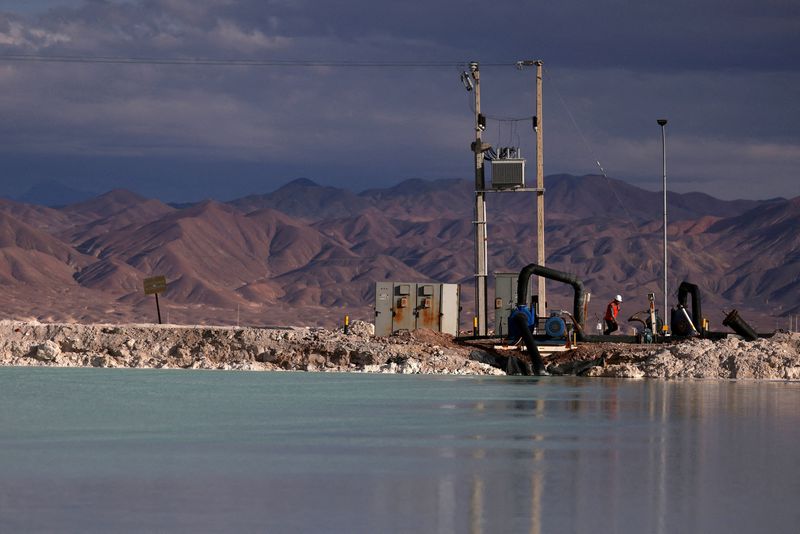By Ernest Scheyder
LOS ANGELES (Reuters) - Western lithium and graphite miners have started charging the electric vehicle (EV) supply chain higher prices for their material, meeting demand for environmentally-friendly and consistent supply that is not linked to China.
In presentations and interviews at this week's Benchmark critical minerals conference in Los Angeles, industry executives, consultants and investors touted the premium pricing model as a way to help prod development of non-Chinese supply, a goal of Washington, Brussels and other Western governments.
The surcharges mirror a plan from the rare earths industry as Beijing exerts control of the critical minerals market and some EV backers worry that weaker environmental standards among some Chinese miners could tarnish the industry's clean energy credentials.
China refines more than 90% of the world's graphite and last month said it will require export permits for the metal, the largest component of an EV battery.
Lithium, the lightest metal, is used to make a battery's positively charged cathode and prized for its ability to store energy. China is the world's largest lithium processor.
"There's a premium to secure material from North America," said Patrice Boulanger of Nouveau Monde Graphite, which is building a Canadian mine and has a non-binding offtake with Panasonic Energy. "We have the highest (environmental, social and governance) standards."
Miners say the surcharges make investors more comfortable financing new projects, especially as Chinese rivals have been known to sell metals below prevailing market rates.
"For a company to make an investment decision here in the United States ... there has to be an adequate return for that," said Shaun Verner, CEO of Syrah Resources, which received U.S. Department of Energy funding to build a graphite processing plant in Louisiana that will supply Tesla (NASDAQ:TSLA).
"Customers understand that there is going to a degree of pricing differential across different geographic markets and potentially different provenance of materials."
Later this month, Benchmark, a data and information provider, will start publishing a sustainable lithium price that tracks what automakers have been willing to pay for ESG-friendly supplies of the white metal.
Brazil's Sigma Lithium (TSXV:SGML) has already begun selling its production at prices it says reflects its sustainability.
The surcharge talk comes despite recent plunges in a range of lithium prices. That may, some industry members say, make it harder to convince customers to pay more. Higher metals prices could also boost the cost of various electronics.
Amanda Hall, CEO of privately-held Summit Nanotech, said miners should produce consistent, environmentally-friendly supplies as a general rule, regardless of market dynamics.
"I don't think customers will pay more, based on commodity markets in general," said Hall. Summit Nanotech, a direct lithium extraction company, has projects in North and South America.
Others say they plan to keep surcharges, convinced that auto companies will pay.

Northern Graphite, which runs a Quebec graphite mine and is building an anode facility, is already selling types of the metal at prices above Chinese rivals, said CEO Hugues Jacquemin.
"Our customers want guarantee of supply, they want quality of material, and they want long-term sustainability," said Jacquemin. "Today, when you buy graphite from China, you don't know where it comes from."